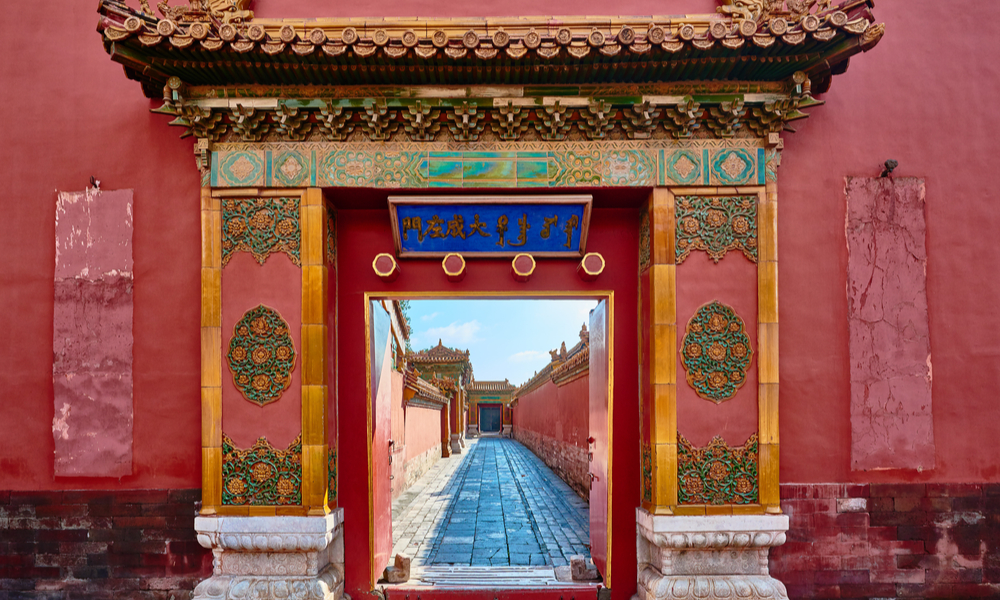Traveling to Beijing but don’t know where to start? How about right here? Much like the country of China itself, it’s capital, Beijing, is a vast and exciting city bustling with things to do and see. It’s easy to see why planning out a trip here could get stressful, you just want to see it all! To help you get the most out of your Beijing experience, we’ve put together a quick list of useful travel tips that are sure to put your mind at ease.
Wǒmen zǒu ba — Let’s go!
Trip Duration
Beijing is big and trust us when we say there is a lot to see. When you’re headed here, make sure to allot at least 4-6 days for your trip. Just hitting the main sites alone will take you at least two days and that too, only if you’re extremely strategic in your scheduling. Chances are that you’re traveling a great distance to get here (a 13-15 hour flight from NYC and a 10-hour flight from London, just to put that into perspective), so while you’re in Beijing you’re going to want to have enough time to soak in the sights and actually experience the best of of what this metropolis has to offer!
Visa & Currency
There are only fifteen countries that don’t require a visa to visit China. That leaves 180 on the list that do! If you’re planning a trip here that’s longer than 72 hours, chances are that you’re going to need a visa so be sure to check on the exact policies. If Beijing happens to be a stop over destination for you (a layover or short trip before another destination outside of China) you might be in the clear. Again, be sure to check online or by phone on the exact parameters of your specific visa requirements before you book your ticket, the last thing you want is to be stuck at the airport after a long journey only to be denied entry!
As for exchanging your money, Bank of China is your best bet. It’s the largest bank chain in China and accepts Great Britain Pound, Euro, U.S. Dollar, Swiss Franc, Singapore Dollar, Swedish Crown, Danish Crown, Norwegian Crown, Japanese Yen, Canadian Dollar, Australian Dollar, Philippine Peso, Thai Baht to exchange for Chinese Yuan. Of course there are many other authorized banks that offer foreign exchange services, and you might even find some hotels, restaurants and shops nearby that will also accept foreign exchanges of the above currencies. But be careful! Do your research about the exchange rate and make sure you can verify the legitimacy of the business you’re exchanging from. Another thing to keep in mind is that like many places, smaller shops, restaurants or outdoor markets are cash-only, so knowing where to exchange your money/withdraw cash is definitely key.
Communication
The official language of China is Mandarin Chinese, and this is what the majority of people in Beijing speak. Don’t worry if you’re having difficulty communicating, you’re not alone! Even the locals have trouble understanding each other; Mandarin is a northern dialect, so combined with the other 200+ dialects spoken in China and the diverse population within Beijing, communicating in this bustling city is no east feat. Here are some key phrases to get you through some of the integral parts of your trip:
- How are you?: Nǐ hǎo ma? (Nee-haoww-mah?) 你好吗
- Thank you: Xièxie. (sshyeah-sshyeah) 谢 谢
- How much money? Duōshao qián? 多少钱 (Dwor-sshaoww chyen?)
- I want to go to … Wǒ xiǎng qù… (Wor sshyang chyoo …) 我想去 …
- useful for buying train tickets, taking a taxi, etc.
- Restroom: Cèsuǒ. (tser-swor) 厕所
Weather & What to Pack
If you’re looking for vivid, colorful scenery, smaller crowds and the best climate, the best times to visit Beijing are from March to May and from September to October. These seasons are much more temperate than the scorching hot summers and cold, snowy winters here. If you make it here in the Autumn, be sure to pack a light jacket and some sweaters, as temperatures can get quite low the closer you are to the winter. If you’re here in the spring (March to May), bring a few layers to dress in. Temperatures vary throughout the day, early mornings and nights tend to be cooler while afternoons are on the warm side. With a whole day of sightseeing and night of dining and nightlife ahead, you don’t want to be too hot or too cold!
Must-See Sights
- Forbidden City
- The former Chinese imperial palace complex from the Ming – Qing dynasty (1420 to 1912).
- Tienanmen Square
- A city square in the center of Beijing named after the Tienanmen that separates it from the Forbidden City.
- Hutongs
- Hutongs are a type of alley way or very narrow street prevalent mostly in northern Chinese cities. In Beijing, hutongs are formed by lines of traditional courtyard residences called siheyuan.
- Summer Palace
-
A former imperial garden of the Qing Dynasty that includes a plethora of lakes, gardens and palaces.
-
- Badaling (Great Wall of China)
- This is the site of the most visited section of the Great Wall of China, located approximately 80 kilometres northwest out of urban Beijing city.
- Temple of Heaven
- An complex of imperial religious buildings and temples
Medical Services
Due to the high volume of tourists in the city in Beijing, there are quite a few hospitals (twenty-nine to be exact) that either have special foreign clinics or that offer medical services specifically for foreigners. Listed below are a few of the largest and easiest ones to locate:
- China-Japan Friendship Hospital
Address: No.A2, Cherry Road, Heping Street - Beijing Tongren Hospital
Address: No.2, Chongwenmen Street (inner), Beijing - Beijing Chaoyang Hospital
Address: No.8, Baijiazhuang Road, Chaoyang District, Beijing.
Transportation
First and foremost, if you’re trying to hail a taxi on your own, be careful! If you happen to hop into an impostor cab, you’re likely to be very overcharged. Here’s how to recognize a legal taxi in Beijing:
- The taxi plaque number starts with the letter”B”
- The taxi should have a light on the top of the vehicle and meter inside (make sure you ask to turn it on if it’s not running).
- Taxis on the road are more likely to be legitimate than those waiting or parked on side streets.
You should use the same precaution with public buses, especially the ones labeled as tour buses. Similar to taxis a legal tour bus plaque starts with “B”, if you don’t see that, there might be a chance you’re about to hop on board of scam!
And there you have it, everything you need to know about your Beijing adventures. If you have any tips of your own, be sure to share them in the comments section!



